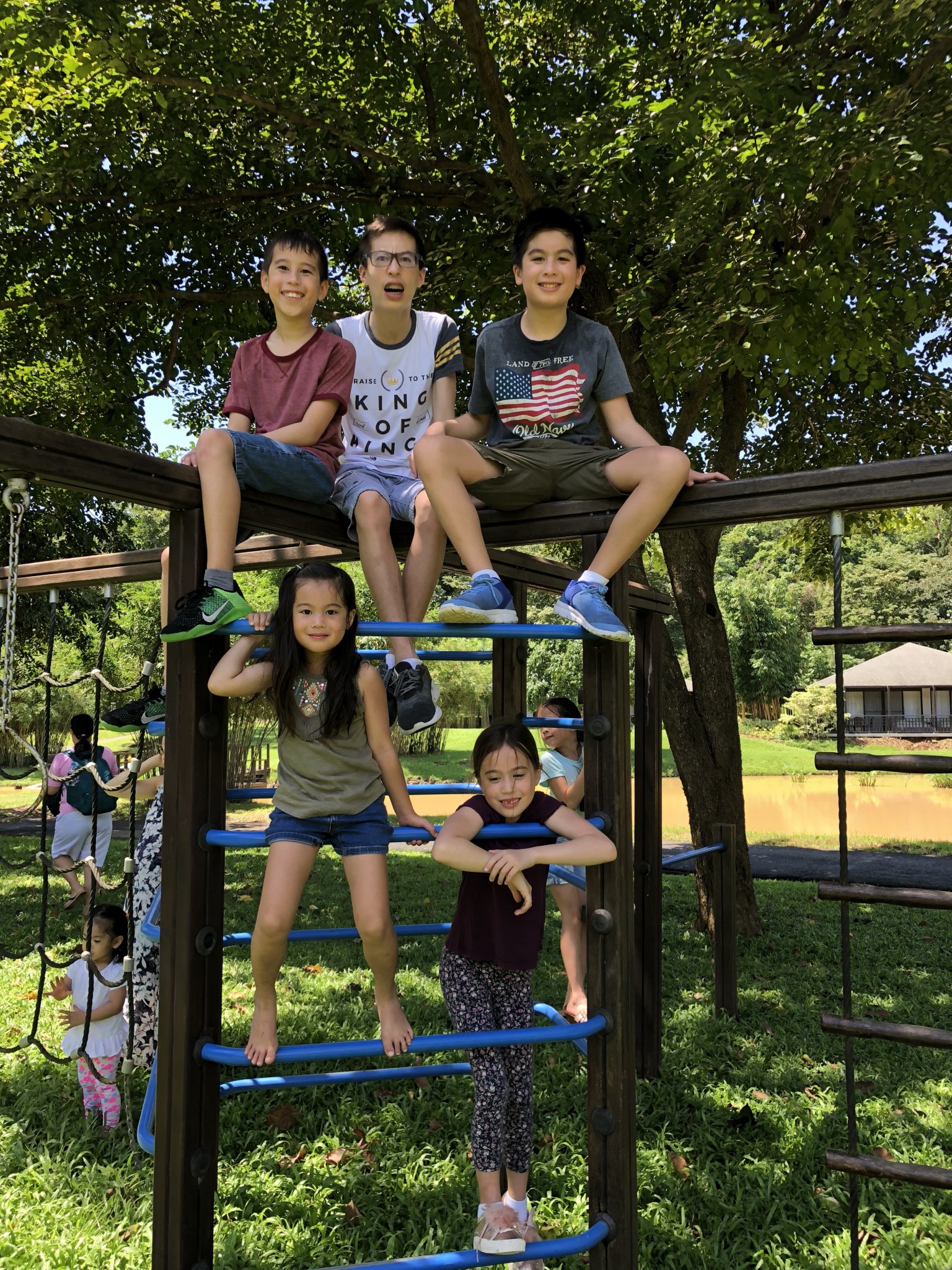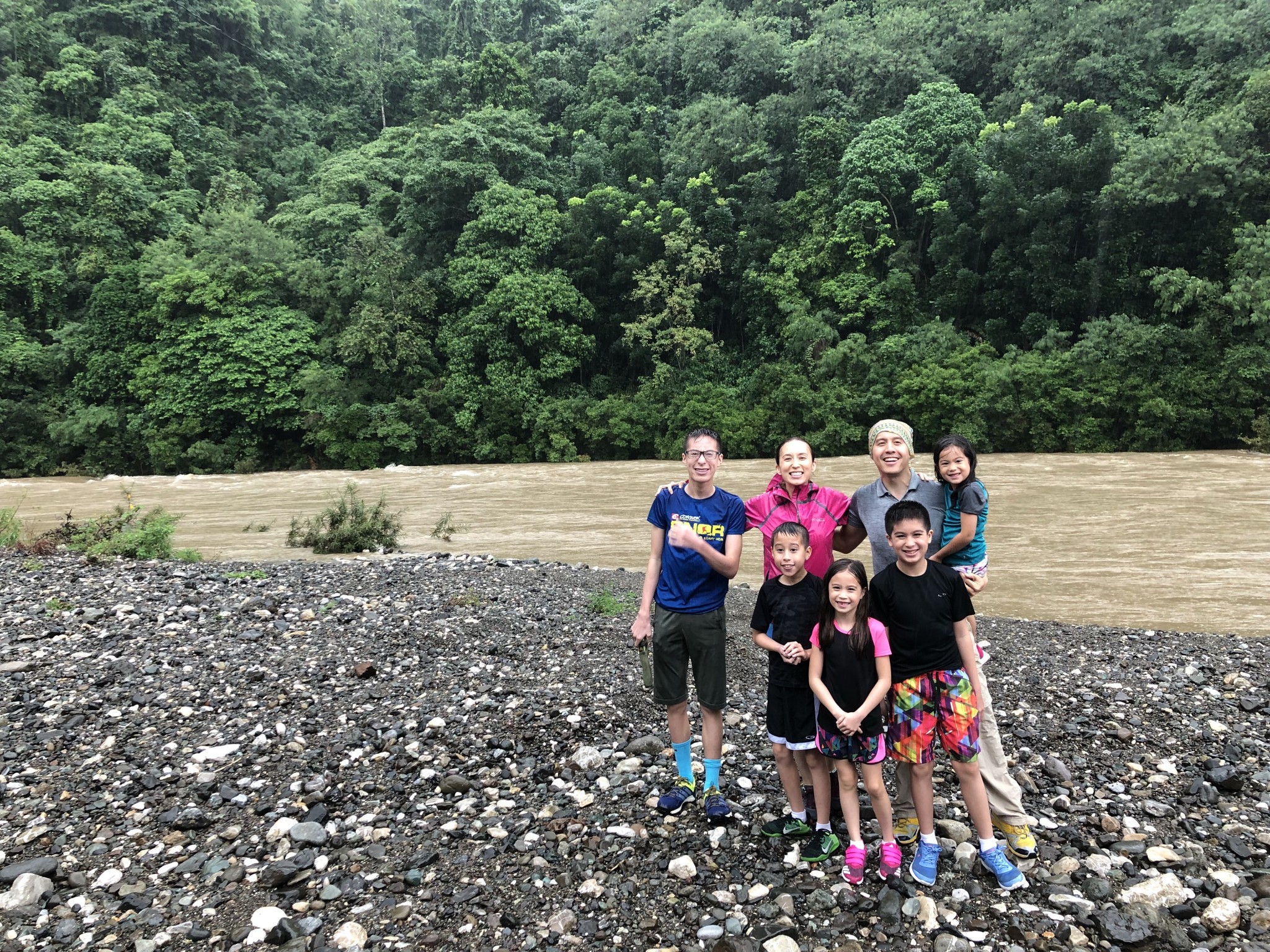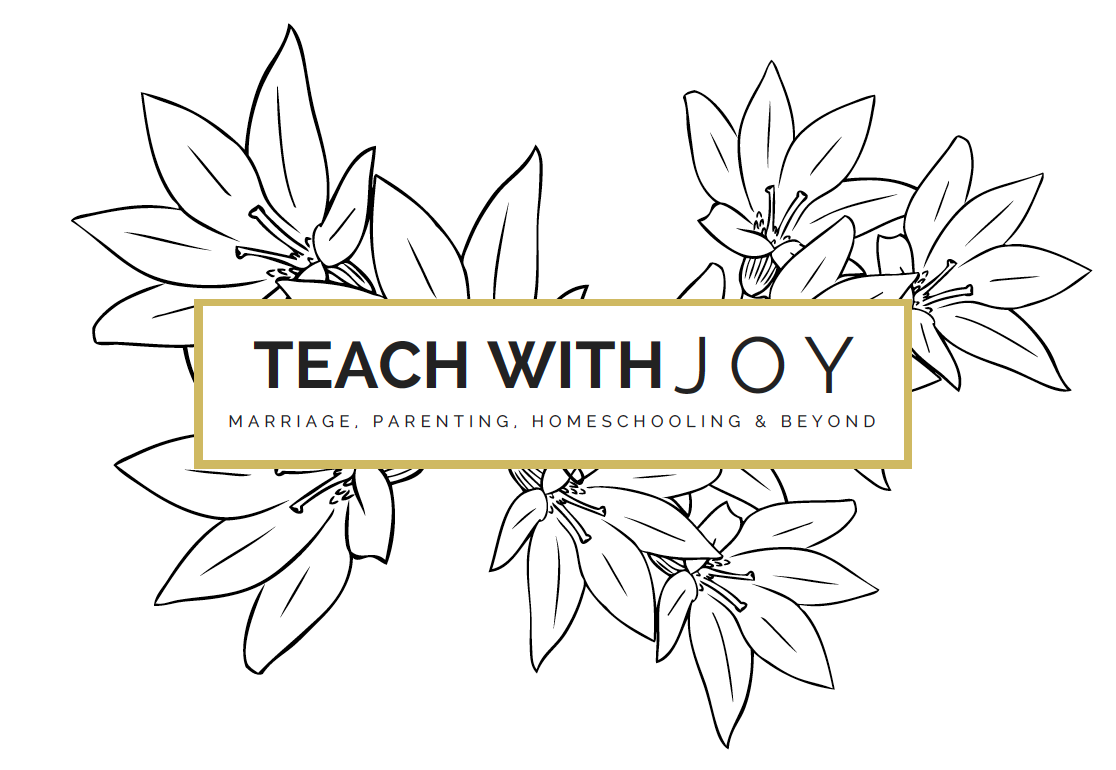I remember being hunched over planks of wood, sawing them and hammering nails into them to make a pretend market stall for the kids, when my oldest son, Elijah, remarked, “I am glad you aren’t a typical girl, mom.”
That statement was obviously loaded with meaning, which I extracted from him.
“What do you mean by that?”
He explained that I was feminine but not a prissy girl who couldn’t do things like get my hands dirty. To be honest, there was no method to my woodworking madness. I was going by instinct, but certainly lacked efficiency and experience. It took me a few days to finish this project. And the outcome wasn’t anything to be applauded.
Yet, I don’t think that my carpentry ability was the focus of Elijah’s affirmation. Rather he appreciated the fact that I wasn’t the kind of woman who was only about dresses, make-up, and pretty things.
Sure, I enjoy dressing up and trying my best to look nice, but at the core, there are traces of that little girl who enjoyed being outdoors climbing trees and playing with her pet monkey, Chi-Chi, who could care less about looking put together and proper. That kind of childhood, of scraped knees and hours spent under the sun running around our backyard hiding in forts with my siblings, biking, challenging my body physically, and rolling around with pets, fed an inner cowboy sort of toughness that made it easier to get involved in sports, to push myself as a person, and to stomach physical pain.
I don’t think my childhood was unique in comparison to my peers. It seems that back then, in an age when technology and gadgets weren’t the focus of most kids, the place to be was outside. Getting injured, bruised, and bloodied from falls didn’t send our parents into a panic, either. My parents let me walk around our subdivision without being monitored 24/7. I climbed up to the roof of our home and watched the stars at night, journaling about my day.
It was the norm to explore, get sweaty, dirty and stinky, and occasionally, hurt ourselves in the process of doing things like miscalculating a step on a tree branch. For as long as nothing was broken, we healed just fine and we usually learned from our stupid mistakes.
Having said that, it is rather unfortunate that children are overprotected today and deprived of many of the wonderful adventures I enjoyed as a child, along with the many others from my generation. Because we live with so many more fears than we used to, our default is to be a little too particular about things like hand sanitizer, biking without head, knees, and elbow gear, five point harnesses in car seats, hovering nannies, and the like.
I myself am guilty at times because there are very real threats out there — abductions, pedophilia, sex-trafficking, severe bullying, abuse, random shootings, terrorism, and the rise of natural calamities and disasters. As a victim of rape and sexual abuse myself, I tend to be wary of people I don’t know.
As a result, I want to be extra vigilant about keeping my kids safe and warning them often about the dangers that are out there. However, I know that in the long term, an overemphasis on sheltering my kids and worrying about their future hurt is going to make them “wimpy” and emotionally fragile, unfit for the challenges they will face when they are out of the home.

In Disney’s Moana, there are some spiritual elements that I don’t agree with, such as the spirits of ancestors and the absence of God as creator, but I do like the example that Moana sets for kids when it comes to persevering and overcoming failure. She was presented with the challenge of a seemingly impossible task. She was met with betrayal, obstacle after obstacle, and struggled along the way, but she didn’t let the discouragement, negative thinking, or unfavorable circumstances prevent her from moving towards her goal. In the end she saved her family, her home, and her people.
On the one hand, Moana’s parents were paralyzed by their fears and tried to overprotect her by hiding the past from her, and deceiving her about how dangerous the ocean was. Well-meaning as they were, their method was wrong. Moana, on the other hand, should have obeyed. I would have written that into the script, and I discussed this point with my kids. However, with the encouragement of her grandmother, Moana kept going. Her grandma saw the potential in her, and with her grandma’s help, Moana overcame her fears and insecurities, and she fulfilled her destiny. She also exemplified what it means to be unselfish and sacrificial by putting the needs of others before her own needs.
I want my kids to possess the same traits — grit, the willingness to try and fail and try again, perseverance, selflessness, and courage.

It’s a challenge learning to find the balance between the extremes of overprotectiveness and reckless abandonment. On the one hand it is my duty to prepare my children to perceive and avoid the very real dangers out there. There are situations they ought to run away from, and it’s necessary for them to have a healthy fear of what is wrong, inappropriate, and evil. On the other hand, they need to be exposed to situations where they won’t always be applauded, where they may have to start at zero and work their way up to a level of achievement and success that requires hard work. They need to be street-smart. They also have to learn to fall and get back up again. And sometimes they may actually endure an amount of physical and emotional pain to become stronger persons.
At the beginning of this past year, Elijah was so upset when he tried out for the swim team and discovered he was the worst of all the members. Furthermore, he had no friends at trainings and felt isolated from the others who were levels ahead of him. He wanted to quit right away, but Edric told him to keep at it, and I explained to Elijah that in life he may not always be number one. That didn’t always have to be the goal. Sometimes, he would have to start at the very bottom and then commit to work hard to improve. It tore me up inside to see him in tears but I knew that failure and discouragement would teach him important life lessons.
Today, he has improved significantly, gotten into the discipline of daily training, and he reaches out to others instead of waiting for them to befriend him. He has a long way to go to become very good at this sport but the character lessons have been priceless.
Sports are one way for kids to develop grit and resolve. Challenging them to try out new experiences that force them outside of their comfort zones is also another way to teach them emotional and mental toughness. For example, they can try their hand at a business idea and execute their idea. It may not always fly but at least they understand the work entailed in setting up a business and putting in the hours to earn income.
As they grow up, they can also have more and more autonomy, and be accountable for greater and greater responsibility. Should they make mistakes, that’s okay. It’s part of the process of growing in their independence and using it wisely. When they suffer the consequences of their wrong choices, we don’t need to keep rescuing them either. Consequences are one of the best ways for them to figure out how to improve and be more discerning.
Another way they can grow their emotional and physical muscles is to exercise and participate in outdoor activities — biking, climbing mountains, walking, jogging, etc. It’s even better if we can set the example for them by enjoying these activities with them. When I go running and Tiana wants to come along, I don’t let her give up. I remind her that she needs to be strong and healthy, and she keeps going until we finish even if it is hard because I am beside her, modeling what it means to press on as well as affirming her effort.

Then there is serving the Lord and other people as a family, which shifts the focus of our children from themselves to the needs around them. My older sons are currently leading bible studies for their friends. It took them a while to do this because the conviction had to come from the Lord instead of being imposed on them by Edric or myself. The start was awkward but now they have gotten used to preparing for their sessions, patiently facilitating, and attending to their friends when they come over.
And finally, we need to teach our kids to deny themselves and practice self- control and restraint. With little children it can start with simple things. Catalina, my fifth child, really likes to chew gum. She would chew ten pieces a day if I let her. This is one way I teach her self-control. I tell her something like, “No gum today.” For her five year old self, it feels like a big deal! But she is able to now say, “Okay, mommy” and quit nagging me about it as she tries her best to wait.
At the end of the day, we need to trust the Lord and entrust our kids to Him. We can’t promise our children that life is going to be problem and pain-free for them. We can’t protect them every moment of every single day from every accident and bad choice they will suffer from. However, we can teach them what it means to find their security in God and to be dependent on Him as they navigate life. They will fail, mess up, and get hurt, and we won’t always be there to fix everything for them. Yet, if they belong to God, we can rest in the thought that He is a better protector, provider, and keeper of their persons.



YEAH, DO U REALLY THINK JESUS WILL PROTECT YOU?!?!?!? Stop wearing necklaces that have crosses and start wearing Homer charms and donut necklaces!!!! Homer will protect you from a dying in a burning house and drowning in a flash flood!!! Not Jesus!!!! H O M E R !
My gulay, stop being so defensive!!! I’m telling you Homer is the way!!! Not Jesus!!! So stop praying and start saying DOH! I’m an atheist, more like Homerian, a new religion I came up with! Homer is my savior!